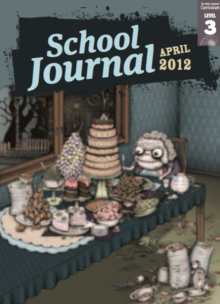Hypothesis: A focus on critical thinking and causal reasoning when responding to texts will support increased levels of critical thinking and ability to create causal links in online written interactions with others for year 5 children reading between 10 and 12 years.
Self observation:
To undertake the self observation of my teaching, I audio recorded myself taking this lesson:
Observation Sheet Template:
I then listened back to the lesson, taking notes about the questions/prompts/statements I asked or made and whether they supported the children in making causal links and being critical thinkers.
Findings:
1. I use a number of talk moves, such as waiting, repeating and adding on, however I do not always use these to their fullest potential.
Waiting: often the time I waited was not long enough before I rephrased or repeated my question to the children.
Examples of successful wait time:
- Teacher: What does it mean to take something for granted? [Wait time]
Student: Appreciate?
- Teacher: Does anyone want to add to what [student] said? [Wait time]
Student: [No response]
Teacher: What are they talking about? What are they saying we take for granted?
Student: Water
- Teacher: What else on that page gives us information to answer that question? [Wait time - not long enough though]
Teacher: Why is it important … why is it an issue if our rivers/streams are polluted? Have a look on here?
Student: Because maybe someone will have drunk it?
Teacher: How come? What is it about what we know about the science of how water works? [Pause].
Student: Because it goes round?
Teacher: What happens to water? Because it’s … re…
Student: Reusable
Teacher: Reusable / recycled
Example:
- Teacher: So [Student] said something about ‘appreciate.’ It’s something that we appreciate...or maybe we don’t appreciate it. Maybe we don’t appreciate the fact we are able to do that and some places in the world can’t do that. Does that make sense? So we just do it...we just go and do it - this morning I just went and filled up a glass of water from the tap and I didn’t think anything of it.
- Teacher: So, try and make a connection between what you said and what I asked you. So you just said "because people throw rubbish in it"...yeah? What’s the connection to what I asked you? What did I ask you? What was the question I asked?
-Student: Because the soap gets into the water
Teacher: So [Student] just said because the soap gets into the water.
Examples:
- Teacher: Does anyone want to add to what [student] has just said?
- Teacher: What about you [student] and [student]? What do you think? Does it say anything in here to help you?
- Teacher: So [student] just said "because the soap gets into the water." Can someone add to that idea or put it into a different way?
Example:
- Teacher: So, what's a dairy farm?
Student: Like a cow farm?
Teacher: Good. A cow farm. So where they produce milk so they can then sell milk to supermarkets and things...ok? So if NZ is changing to more dairy farms, they have said that dairy farms use more water. If more water is being used, and needing to send more beef (cow) overseas, they will be using more water in NZ.
Student: Oh because cows...yep…
3. The simple causal links that were made were responded to by me. I can tell as I listen back to the lesson that I still feel that as the teacher, I need to be the one in control of the conversation. However, this needs to change. Yes, this feels safe, but is it best for the children and their learning?
4. 10 uses of the word 'because' by the children throughout the entire conversation suggest that my teaching strategies are only supporting children to participate in a very low level of critical thinking and creating causal links. Statements from children which included 'because' only ever contained the one causal link before I either added my thoughts/opinions or gave more support.
Examples:
- Teacher: ...we just go and do it - this morning I just went and filled up a glass of water from the tap and I didn’t think anything of it. But what do we know about the world? Can everyone do that?
Student: No. Because it’s pretty much like wasting water...a little.
- Teacher: Why is it an issue if our rivers or streams are polluted?
Student 1: Because we drink out of some of them.
Student 2: Swim in some of them.
Student 3: Because some people are throwing rubbish in them.
- Teacher: Why is it important … why is it an issue if our rivers/streams are polluted? Have a look on here?
Student: Because maybe someone will have drunk it?
Teacher: How come? What is it about what we know about the science of how water works?
Student (same as before): Because it goes round?
- Teacher: Why do you think us sending different foods overseas is changing how much water we use in NZ.
Student: Because maybe they are taking all our food?
Teacher: Because maybe they are sending water over there as well?
- Teacher: Why should we not wash a car on a road?
Student: Because the soap gets into the water.


No comments:
Post a Comment